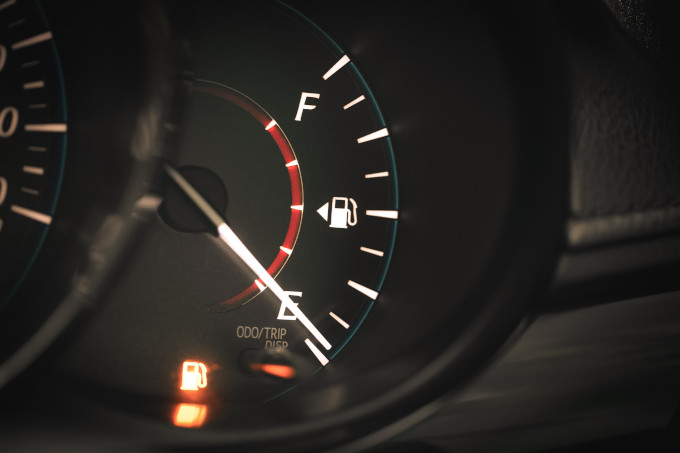Spring is a perfect time for a road trip with sunny days, comfortable temperatures, and a landscape bursting with flowers and new growth. Whether you're planning a day trip to a nearby park or a multi-day adventure, there's nothing quite like the feeling of hitting the highway with your friends or family. But before you start packing your bags and filling up the tank, it's important to ensure your vehicle is ready for the journey ahead. Taking the time to prep your vehicle before a road trip can help prevent breakdowns, ensure your safety on the road, and make your travels smoother and more enjoyable. This article will explore some essential tips for prepping your vehicle for a spring road trip.
Preparing for Your Spring Travel: What to Check
Tires
Checking your tires is one of the most critical aspects of prepping your vehicle for a spring road trip. Your tires are your vehicle's only contact with the road, so ensuring they are in good condition is essential.
First, check your tire pressure. Proper inflation is crucial for safety, fuel efficiency, and tire longevity. Check your car's owner manual or the sticker inside the driver's side door jamb for the recommended pressure. Then, use a tire gauge to check the pressure in all four tires, including the spare. If any tires are underinflated, inflate them to the correct pressure. Underinflated tires on your car can pose several risks, including increased braking distance, making it more difficult to stop your vehicle quickly in an emergency. Underinflated tires can cause uneven tire wear, leading to premature tire failure and the need for early tire replacement. You can also run the severe risk of a tire blowout, which can cause your car to lose control and potentially result in a serious accident.
It's important to regularly check your tire pressure and inflate them to the manufacturer's recommended level to avoid these risks and ensure your car is safe to drive.
It's also important to check your tire tread depth. Tires with low tread (sometimes referred to as “bald tires”) can reduce your vehicle’s grip on the road and increase your risk of hydroplaning or skidding in inclement weather or emergencies. The minimum legal tread depth is 2/32 of an inch, but having at least 4/32 of an inch is recommended for safe driving. To check the tread depth, use the Quarter Test for checking the tread depth of your tires. Here's how to do it in three easy steps:
- Place a quarter into the tire tread with George Washington's head facing down.
- Ensure that the top of George Washington's head faces inward towards the tire.
- Look at the tire and check how much of George Washington's head is visible.
- If the top of George Washington's head is visible, your tire tread depth is less than 4/32 of an inch, and it's time to replace your tires.
- If the tire tread covers the top of George Washington's head, your tires are still in good shape.
Brakes
Your brakes are one of your vehicle's most important safety features, and they play a critical role in keeping you and your passengers safe on the road. Brakes create friction between the brake pads and the brake rotors, which slows down and stops your vehicle. Over time, your brake pads wear down and need to be replaced, and your brake fluid can become contaminated or low, affecting your stopping ability. That's why it's important to have your brakes inspected regularly and to replace them when necessary. A spring road trip is the perfect time to make sure that your brakes are in good working order. If you notice any signs of brake problems, such as squeaking, grinding, or vibrations when you apply the brakes, take your car to an auto technician as soon as possible. Neglecting your brakes can put you and your passengers in danger and lead to expensive repairs down the road.
Fluids
Fluids are crucial in keeping your vehicle running smoothly. Checking them before a road trip can help prevent breakdowns and other problems. Before hitting the road, you should check three fluids:
- Oil: Your engine needs oil to lubricate its moving parts and prevent premature wear and overheating. Check your oil level with the engine cold and parked on level ground. Pull out the dipstick, wipe it clean, reinsert it, and then pull it out again. The oil level should be between the two marks on the dipstick. If it's low, add more oil as needed.
- Coolant: Your engine needs coolant to regulate temperature and prevent overheating. Check your coolant level when the engine is cold, and the vehicle is on level ground. The coolant reservoir is located near the radiator and has a minimum and maximum level. If the level is low, add more coolant.
- Windshield wiper fluid: Good visibility is essential for safe driving, so make sure that your windshield wiper fluid level is topped up. Check the fluid level by looking at the reservoir under the hood. If it's low, just add more fluid. Do not use plain water or any other cleaning solution in place of windshield wiper fluid, which can damage your windshield wiper blades, create streaking, or corrode the metal parts of your wiper system.
Checking these fluids can help prevent costly breakdowns and ensure your vehicle is ready for a long road trip. If you're uncomfortable checking these fluids, have a trusted auto technician inspect them before your road trip.
Battery
A reliable battery is essential for any successful road trip. Your vehicle's battery provides the power needed to start the engine and operate the electrical systems, such as the lights, radio, and A/C. If your battery is weak or dead, you won't be able to start your vehicle, and you may end up stranded on the side of the road.
To ensure your battery is reliable for your spring road trip, consider having it checked by a professional technician. They can perform a battery load test to determine its condition and recommend replacement if necessary.
Emergency Kit
An emergency kit in your vehicle is essential, especially during a road trip. Emergencies can happen anytime, and having the right supplies on hand can help you stay safe and comfortable until help arrives. When putting together an emergency kit for your vehicle, here's a list of things that should be in an emergency kit in your vehicle for a road trip:
- First aid kit: Including bandages, gauze pads, antiseptic wipes, adhesive tape, pain relievers, and any necessary prescription medications.
- Flashlight: Either a rechargeable flashlight or one with extra batteries.
- Blankets or sleeping bags: For warmth and comfort if you get stranded.
- Non-perishable snacks for kids and adults: Energy bars, dried fruit, and nuts.
- Bottled water: Aim for at least one gallon per person.
- Multi-tool: Such as a Swiss Army Knife or Leatherman tool.
- Duct tape: For temporary repairs.
- Jumper cables: In case of a dead battery.
- Tire pressure gauge: To monitor tire pressure
- Spare tire: Make sure it's in good condition and properly inflated.
- Jack and lug wrench: For changing a tire.
- Roadside flares or reflectors: To alert other drivers of an emergency.
- Change of clothes fit for the season and/or umbrella: For protection in any weather.
- Map and compass: In case your GPS or phone fails.
- Cell phone charger: Precharged or one that works in the car.
- Fire extinguisher: In case of a small fire.
- Window breaker and seatbelt cutter: To use during an accident or emergency.
Remember to periodically check and replace any expired or damaged items in your emergency kit to ensure that it's always ready to go in case of an emergency.
Get Ready for the Road Ahead This Spring With AAMCO!
Looking for a comprehensive pre-trip inspection and seasonal maintenance? AAMCO Knoxville has your covered! Prepping your vehicle before a spring road trip is essential for a safe and successful journey. Taking the time to properly prepare your vehicle before hitting the road can help you enjoy your journey with peace of mind, knowing that you are well-prepared for any situation that may arise. Our expert technicians will check your brakes, tires, fluids, filters, belts, hoses, and more to ensure your vehicle is in top shape for any road trip. Schedule an appointment today!











